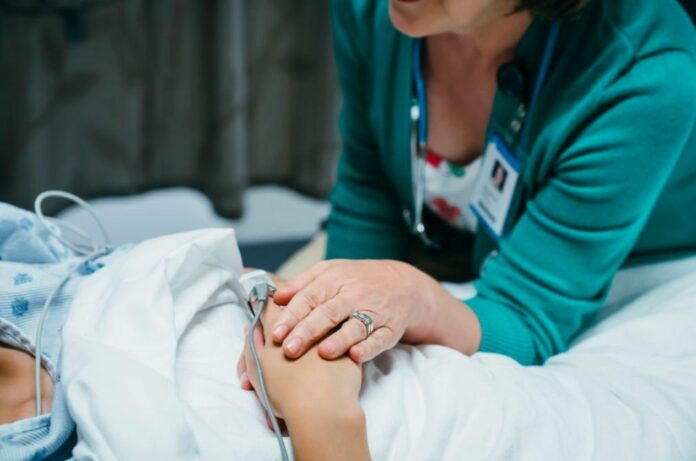The likelihood of experiencing a stroke tends to augment as individuals get older, however, no age is immune from this condition. Notably, there’s an escalating trend of individuals below the age of 50 encountering strokes.
Insomnia symptoms aren’t just ruining your night – they could also be increasing your stroke risk. A recent study explores the strong link between sleep troubles and stroke, especially in individuals under 50.
According to a study featured in the June 7, 2023, online edition of Neurology®, the esteemed medical journal of the American Academy of Neurology, individuals suffering from symptoms of insomnia such as difficulty falling asleep, interrupted sleep, and waking up too early, may have a heightened risk of stroke.
Moreover, the study discovered that this risk is significantly increased in those below the age of 50. However, it is crucial to note that the study doesn’t establish a causal relationship between insomnia symptoms and stroke, rather, it indicates a correlation.
“There are many therapies that can help people improve the quality of their sleep, so determining which sleep problems lead to an increased risk of stroke may allow for earlier treatments or behavioral therapies for people who are having trouble sleeping and possibly reducing their risk of stroke later in life,” adds study author Wendemi Sawadogo.
The new study included 31,126 individuals, averaging 61 years of age, all without a previous history of stroke at the study’s outset.
Study participants were queried on four elements related to sleep issues, including frequency of difficulty falling asleep, waking up in the middle of the night, premature awakenings, and inability to return to sleep, as well as the regularity of feeling refreshed upon waking. The participants could choose between responses such as “most of the time”, “sometimes”, or “rarely or never”, leading to a scoring system ranging from zero to eight, with higher scores indicative of more pronounced symptoms.
For an average duration of nine years, participants’ health status was monitored. Over this period, 2,101 stroke incidents were reported.
Upon adjusting for various stroke risk factors like alcohol consumption, smoking habits, and physical activity levels, the team found that individuals exhibiting one to four insomnia symptoms had a 16% amplified risk of stroke compared to those devoid of such symptoms. Out of 19,149 people displaying one to four symptoms, 1,300 suffered a stroke. Comparatively, of the 6,282 individuals without any symptoms, 365 had a stroke. Moreover, people experiencing five to eight insomnia symptoms witnessed a 51% escalated risk. From the 5,695 people showcasing five to eight symptoms, 436 fell victim to a stroke.
The correlation between insomnia symptoms and stroke risk was remarkably potent among participants under 50 years of age. Those reporting five to eight symptoms within this age group had nearly quadruple the stroke risk compared to symptom-free individuals. Among the 458 individuals under 50 bearing five to eight symptoms, 27 experienced a stroke. Meanwhile, participants aged 50 or older with the same symptom count had a 38% elevated stroke risk compared to those without symptoms. Out of the 654 participants aged 50 and above suffering from five to eight symptoms, 33 had a stroke.
“This difference in risk between these two age groups may be explained by the higher occurrence of stroke at an older age,” explains Sawadogo. “The list of stroke risk factors such as high blood pressure and diabetes can grow as people age, making insomnia symptoms one of many possible factors. This striking difference suggests that managing insomnia symptoms at a younger age may be an effective strategy for stroke prevention. Future research should explore the reduction of stroke risk through management of sleeping problems.”
The link between insomnia symptoms and stroke risk appeared to intensify for individuals who also had conditions such as diabetes, hypertension, heart disease, and depression.
One limitation of the study was its reliance on self-reported data regarding insomnia symptoms. This methodology could potentially compromise the accuracy of the information collected.
Image Credit: Getty
